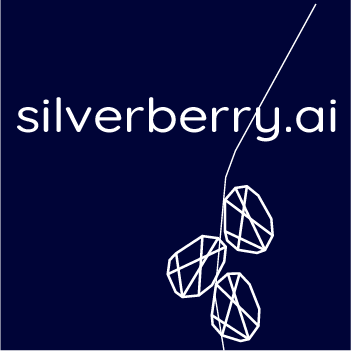Responsible AI-by-Design Tools
A collection of tools that can be used to implement Responsible AI-by-Design Methodology. See Responsible-by-Design Framework for more information.
This page contains a list of tools that can be used to implement the Responsible AI-by-Design Framework and under the Toolkit guidance.
DISCLAIMER: The tools listed are developed and maintained by third-party entities, both commercial and open source. This list is provided strictly for educational and informational purposes only. Silverberry makes no representations or warranties, express or implied, regarding the functionality, reliability, security, accuracy, or fitness for any particular purpose of any tools listed herein. Silverberry expressly disclaims any endorsement, recommendation, or guarantee of these tools, their performance, or their suitability for any specific application or AI use case. Users are solely responsible for conducting their own due diligence, assessment, and validation of any tools before implementation. Users must independently review, evaluate, and comply with all applicable terms of use, licenses, conditions, and restrictions established by each tool's publisher or provider. Use of any listed tools is at the user's own risk and discretion. Silverberry shall not be liable for any damages or losses arising from the use of, or reliance upon, any tools mentioned in this list.
We welcome your feedback and encourage you to contact us if you would like to suggest additional tools that can be used to implement the framework.
Responsible AI-by-Design Tools
-

AI Fairness 360
An open-source toolkit providing metrics and algorithms to detect and mitigate unfair outcomes in ML. Offers data preprocessing, in-training, and post-processing debiasing techniques, plus detailed tutorials. Useful for identifying potential biases and applying mitigation strategies.
-

What-If Tool
A visual interface for analyzing ML models without coding. Allows users to adjust input features and see how changes affect predictions, making it easier to spot imbalances across various data subsets. Useful for iterative fairness checks and rapid experimentation.
-

Fairlearn
An open-source Python package that provides fairness metrics and mitigation algorithms. Comes with a dashboard to compare performance across demographic groups and explore trade-offs between fairness and accuracy. Useful for building equitable models in diverse scenarios.
-

Evals
OpenAI’s open-source Evals repository offers user-friendly templates and sample methods to create or conduct safety evaluations on AI systems and analyze the results.
-

Alibi Detect
A library for outlier, adversarial, and drift detection. Monitors real-time data to alert teams when data distribution shifts, helping maintain fairness. Integrates into production pipelines to detect emerging bias or performance degradation.
-

River
An online/streaming ML library for Python that updates incrementally with incoming data. Useful for continuously adapting models to changing data distributions, helping maintain fairness over time.
-

Evidently AI
A Python library providing interactive dashboards for ML model monitoring. Tracks metrics like data drift, target drift, and performance shifts, which can be extended to fairness metrics. Helpful for both offline analysis and real-time detection of issues affecting fair outcomes.
-

Seldon
A platform offering AI deployment, monitoring, and explainability. Integrates fairness checks into production monitoring, providing real-time metrics and alerts on model behavior. Works seamlessly with explainability tools for complete lifecycle visibility.
-

WhyLabs
A model monitoring and data observability platform that detects anomalies, drift, and potential fairness issues. Integrates with existing ML pipelines, offering continuous oversight and alerting so teams can respond before problems escalate.
-

Model Card Toolkit
An open-source framework for creating “model cards,” documents outlining a model’s purpose, data, metrics, and performance (including fairness). Helps stakeholders understand a model’s intended use, limitations, and ethical considerations, facilitating transparency and responsible AI deployment.
-

SHAP
A library that uses Shapley values to explain individual predictions. Highlights how each feature influences a model’s output, enabling a deeper understanding of any potential group-specific outcome differences. Widely used to enhance transparency and identify unfair patterns.
-

LIME
A technique that approximates complex models locally with simpler, interpretable models to explain individual predictions. Useful for spotting unintended biases or inconsistencies by showing how changes in inputs affect outcomes.
-

AIX360
IBM’s open-source toolkit focused on interpretability and explainability. Provides algorithms and metrics to explain datasets and model predictions, complementing fairness tools like AIF360 to promote transparency and equitable outcomes.
-

Flowable
An open-source BPM (Business Process Management) platform that can integrate with AI systems. Enables “human-in-the-loop” workflows for user recourse, such as contesting AI outcomes perceived as unfair.
-

Camunda
A workflow and decision automation platform supporting BPMN. Orchestrates human-in-the-loop reviews of AI outputs, allowing for user feedback or dispute resolution. Helpful for regulated industries or user-centric processes where fairness oversight is crucial.
-

CHAI's Nutrition Label Model Card
Coalition for Health AI (CHAI) advanced draft frameworks for how it will certify independent Assurance Labs and help to standardize the output of these labs that test Health AI models through CHAI Model Cards — a kind of ingredient and nutrition label.
